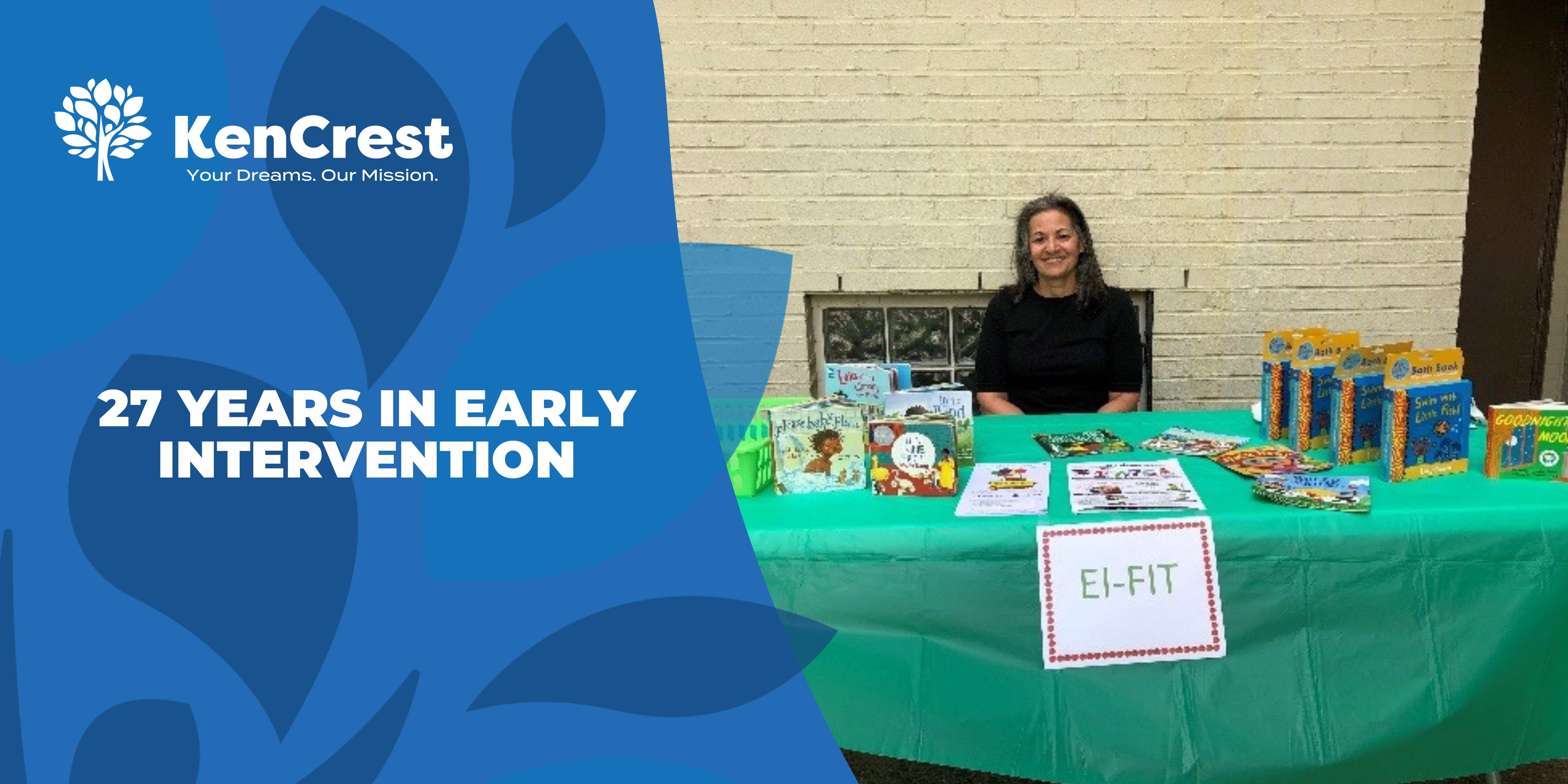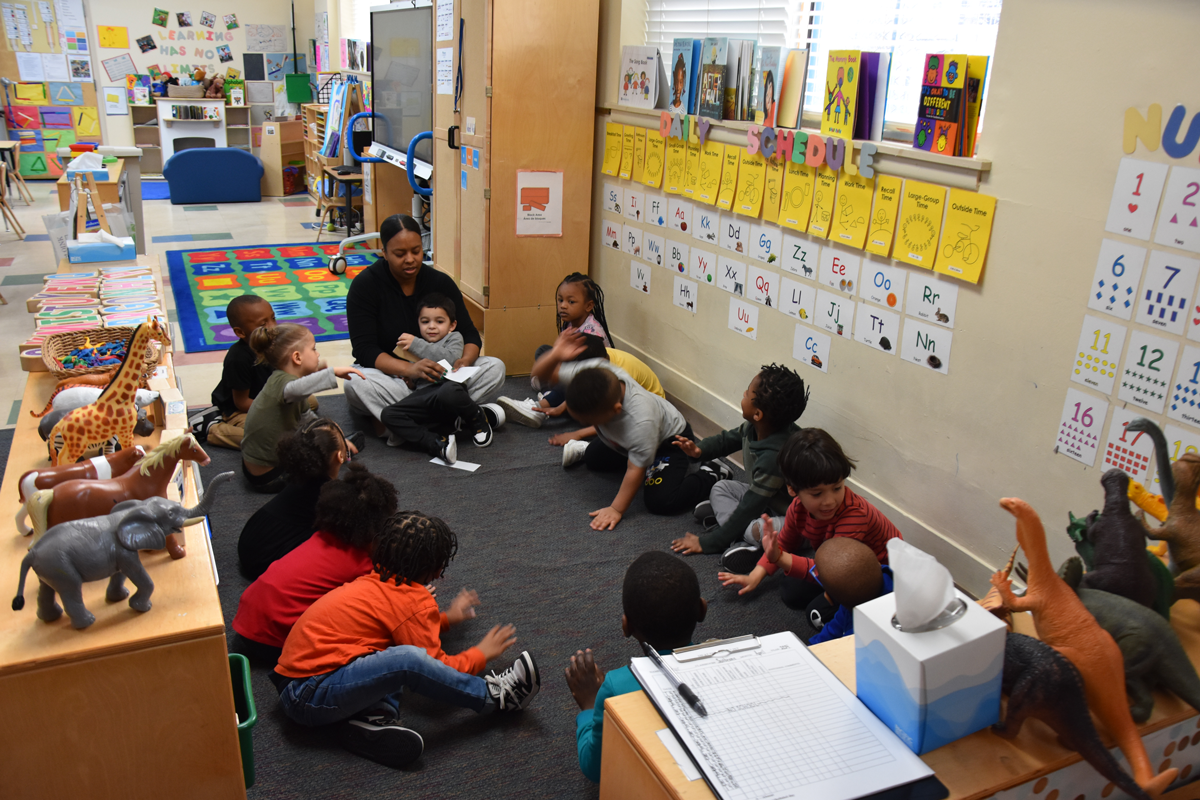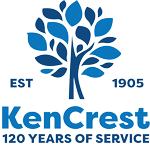
Edie Harrison, the Director of Program Services Home/Community 0-5, celebrates 27 years of helping families in Early Intervention.
By Sydney Kerelo
At 19 years old, Edie Harrison found herself at a crossroads, unsure of her life’s path. But she was certain about one thing—she wanted to make a difference. Her childhood was spent in the vicinity of a residential school for children with physical disabilities in West Philly, and she was no stranger to interacting with people with disabilities. This early exposure led her to work at an overnight summer camp, Variety Club Camp, that supported children with physical, intellectual, or developmental disabilities, during her graduate school years.
She developed a deep connection with each kid there when she stepped foot on the grounds. One memorable night, the camp organized a bonfire where kids could roast marshmallows and share stories. Edie was sitting with a young boy with cerebral palsy on her lap among the other campers. They had been there for a while, and the boy sat quietly, not saying a word. Edie asked, “Are you okay?” The boy looked up at her, smiled, and said, “Yeah, I'm just happy to be here.” This moment was a profound realization for Edie about the power of inclusion and the joy it brings to everyone involved.
That moment made Edie realize the power of people being empowered to reach their dreams. She knew that she wanted to provide support to children with disabilities and their families so that they could learn ways to participate fully in life. She became interested in early intervention and taught activities in a way that anyone could approach from whatever level they were at.
She worked at the camp until she was 23 when she finished graduate school and began working with Healthy Beginnings in West Philadelphia. The organization helped families at risk of being referred to the Department of Human Services (DHS). During the day, parents would attend classes while the children would engage in age-appropriate activities in separate classrooms. Later in the day, the parents would come together with the children for group activities that fostered positive behaviors and coping strategies.

While Edie loved this work and being there to help families in need, she wanted more of a classroom setting and found her way to KenCrest. Her first job with the organization was as a classroom teacher in the West Center when they had a medically fragile class that specifically cared for children with trachs and feeding tubes. And she loved it. She worked there from 1997 to 2000 before the medically fragile classrooms ended.
She started looking for more early learning positions and saw that KenCrest was hiring at their Rosemont Center, a suburban Pennsylvania Early Learning Center that has since closed its doors. The Rosemont Center was a childcare center, and the older classrooms had children with IEPs—Individualized Education Programs tailored to meet the needs of students with disabilities—who would join the class. After a few years in this role, Roseann Adamo, the current Executive Director of Home and Community Based Services, Birth to 5 years old, and the Clinical Program told her about a contract with the state of Delaware to hire people with educational backgrounds in their service coordination unit. Edie jumped on the chance and ran that program for 10 years before changing roles again and moving up into her current position, Director of Program Services KenCrest Home/Community 0-5.
“Roseann kept trying to convince me to come into my current position, but I never saw myself as a supervisor, period,” she says. “But for each role I got used to, Roseann’s support really made it possible. So, I took the position, and it really pushed my skills and comfort level. I’ve gained so much knowledge in this role, and being able to mentor under Roseann has been priceless.”
Edie celebrates her 27th anniversary working at KenCrest this September. She has spent many years helping the Early Intervention program thrive and supporting families as they learn real-life ways to make changes in their children’s lives.

“At KenCrest, there are two parts to Early Intervention, the Birth to Five communities-based program and the Birth to Three program, which is the coaching model,” explains Edie. “The real magic happens in the sessions when the family is able to practice strategies in real, naturalistic ways. Interventionists go in and find out where in the day a child and family are struggling; maybe it’s getting the child from the house to the car to go to the supermarket and then working through with the family how to make a change and help that to happen positively.”
According to Edie, reflective coaching forms the basis of working with a family. If a family states that they’ve been struggling to change their child’s diaper because the child rolls all over the table, the interventionists and family will make a plan for that session to observe during diaper-changing time and ask reflective questions. “I see she is rolling around. Why do you think that is?” “Oh, I think she wants to play or is bored.” “Ok, what are some ideas you have that we might be able to do?” It becomes a conversation to discover what might work, and the family will practice that over the week and see if it helps during the next session.
“Parents are not the receiver of services; they are crucial, the most important member of the team,” says Edie. “So, it’s not just them taking our expertise; it’s them bringing their knowledge of their child, and us bringing ours and collaborating together.”
As Edie prepares to retire at the end of 2025, her legacy at KenCrest will endure. The knowledge and expertise she has imparted to the Early Intervention team will continue to positively impact families in the community for years to come.
